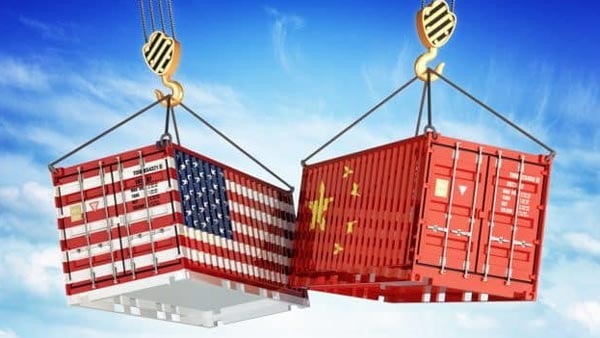US-China trade war: Will Vietnam be 'collateral damage'?
According to assessments, industries such as electronics assembly, chips, semiconductors, garments, footwear, children's toy production, sports equipment, wooden furniture... of Vietnam have a great opportunity to gain more market share from China in the US market as well as attract more FDI capital.

Vietnam's challenge in the US-China trade war is to strictly control Chinese goods "borrowing" Vietnam to find ways to export to the US.
The Trump administration has released a list of nearly 6,000 items that will be subject to tariffs in a package of $200 billion worth of Chinese goods. The tariffs will take effect from September 24, 2018, with a starting tax rate of 10% and are expected to increase to 25% starting January 1, 2019.
In addition, the US also announced that it would consider imposing an additional 267 billion USD in taxes if China retaliated.
According to Bao Viet Securities Company (BVSC), unlike the first $50 billion tax package, this $200 billion tax has covered many items that are inputs for production activities as well as consumer goods (70% are intermediate goods, 25% are consumer goods). Therefore, the impact on the US economy will certainly be greater, not only on businesses but also on US consumers.
According to BVSC, this escalation by the Trump administration has dashed expectations regarding the negotiation proposal last weekend. China also announced that it would consider refusing to negotiate if the Trump administration decided to impose tariffs on 200 billion USD. Thus, the future of the negotiation is quite uncertain.
However, the Trump administration's announcement that the initial tax rate would be only 10% (not 25% immediately), BVSC believes, could also open up opportunities for upcoming negotiations.
In fact, right after the US decided to impose tariffs on $200 billion worth of Chinese goods, the Chinese Ministry of Commerce also issued a statement saying it would "respond immediately" without specifying the form of response.
Regarding the timing of the tax, BVSC said that this is a relatively sensitive period because it is close to the midterm elections of the US Congress. It is very likely that the closer this time is, the tougher Mr. Trump will be on China to "take advantage" of the support of voters who voted for him. The proposal for negotiations may just be a short-term tactic to take advantage of the support of other voters.
According to BVSC's assessment, if the US-China trade war continues to escalate to a full scale, opportunities will come to many other countries in the role of replacing export goods to the two markets of the US and China, including Vietnam.
In industries such as electronics assembly, chips, semiconductors, garments, footwear, children's toy production, sports equipment, wooden furniture... Vietnam has a great opportunity to gain more market share from China in the US market as well as attract more FDI capital into these industries, thereby creating more jobs, increasing exports, and improving the trade balance.
However, the challenge for Vietnam is to strictly manage and avoid the phenomenon of Chinese goods “borrowing” Vietnam as a transit country to find a way to export to the US, typically iron and steel products and wooden furniture. If this happens, Vietnam will be affected by “collateral damage” when the US imposes punitive tariffs.

.jpg)






